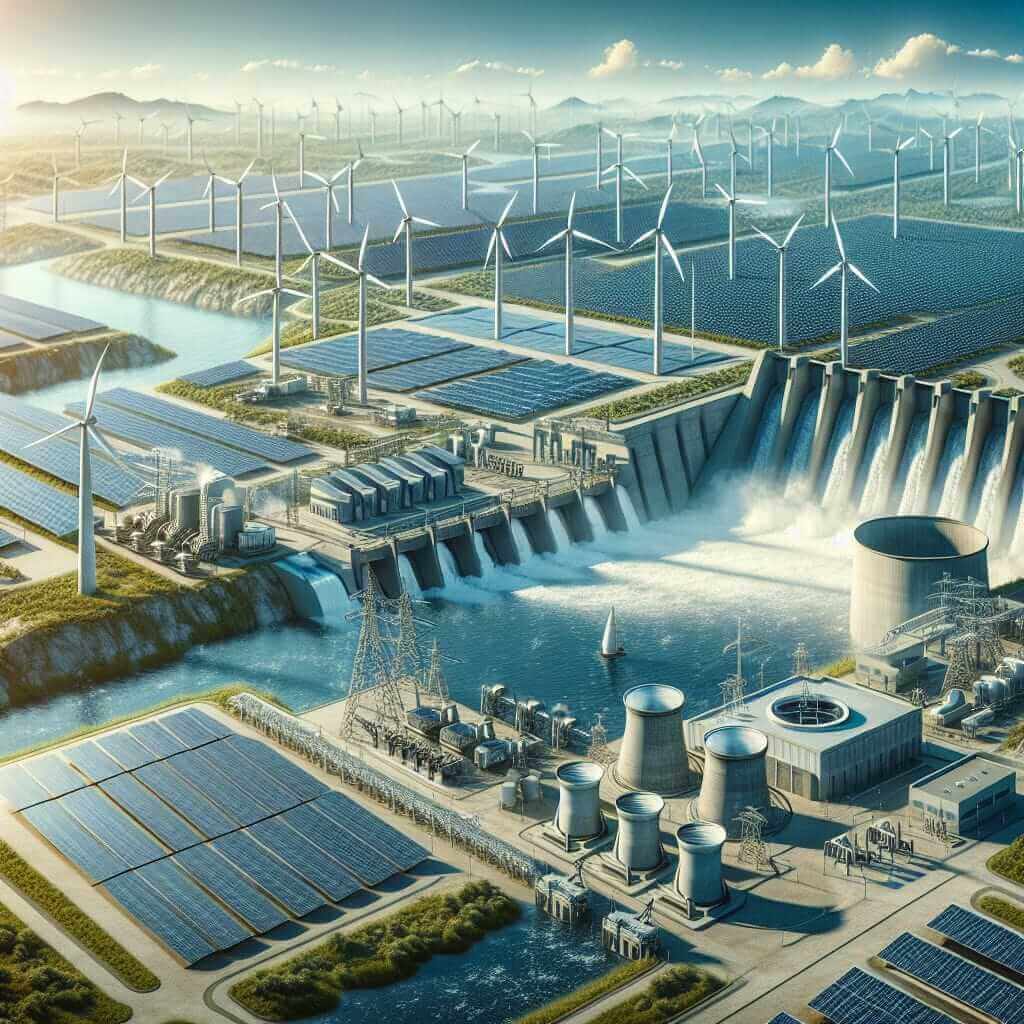The Reading segment of the IELTS exam is pivotal and often challenging due to the diversity of topics and the level of comprehension required. Among the various topics, “renewable energy” and its implications on industrial policy is quite pertinent, seen increasingly with the global push for sustainable development. Understanding this theme can enhance your prospects of performing well in the IELTS Reading test since this subject matter is timely, contemporary, and well-documented.
Sample Reading Test: Implications of Renewable Energy for Industrial Policy (Hard Text)
Reading Passage
The Role of Renewable Energy in Shaping Industrial Policy
In the past decade, renewable energy has transitioned from a niche focus to a central element in international energy policy and industrial strategy. Renewable energy sources such as solar, wind, hydropower, and biomass, which are pivotal to combating climate change, have significant implications for the formulation and implementation of industrial policies.
Firstly, the adoption of renewable energy requires a comprehensive overhaul of infrastructure. Traditional energy grids, designed for centralized and often fossil fuel-based power generation, must be adapted to accommodate decentralized and intermittent energy flows. This necessitates substantial investment in smart grids, energy storage technologies, and grid management systems. Consequently, industrial policies must incentivize research and development (R&D) in burgeoning technologies and provide financial mechanisms to support infrastructure modifications.

Furthermore, the shift to renewable energy impacts labor markets. Transitioning from fossil fuels to renewables could result in the displacement of workers in conventional energy sectors. However, it also creates new employment opportunities in manufacturing, installation, and maintenance of renewable energy systems. To mitigate the socio-economic impacts of this transition, industrial policies must include retraining programs and support for workers affected by the shift.
In addition, renewable energy implementation influences global trade dynamics. Countries rich in renewable resources may become net exporters of energy technologies and expertise, enhancing their geopolitical influence. Conversely, nations dependent on fossil fuel exports might face economic challenges as global demand shifts toward cleaner energy sources. Thus, industrial policies must navigate these trade implications, balancing domestic energy needs with international market trends.
Lastly, the environmental benefits of renewable energy adoption are manifold, leading to reduced greenhouse gas emissions and decreasing dependence on finite resources. This environmental prerogative aligns with the growing consumer and societal demand for corporate social responsibility, driving industries to adopt sustainable practices. Industrial policies must therefore motivate industries to align their operational strategies with sustainability objectives, potentially through regulatory frameworks and incentives.
In summary, the implications of renewable energy for industrial policy are vast and multifaceted, encompassing infrastructure, labor markets, global trade, and environmental sustainability. By strategically addressing these areas, industrial policies can enhance the resilience and competitiveness of economies in the burgeoning green energy landscape.
Questions
Section 1: Multiple Choice
-
According to the passage, what is required for the integration of renewable energy into the traditional energy grid?
- a) Increased fuel supply.
- b) Decentralized energy sources.
- c) More fossil fuel usage.
- d) Substantial infrastructure investment.
-
What is one potential impact of the renewable energy transition on labor markets?
- a) Workforce equality.
- b) Decrease in energy prices.
- c) Job displacement in traditional sectors.
- d) Decrease in energy production.
Section 2: Identifying Information (True/False/Not Given)
-
The passage suggests that all countries will equally benefit from the renewable energy shift.
- True
- False
- Not Given
-
The environmental benefits of adopting renewable energy include reduced reliance on finite resources.
- True
- False
- Not Given
-
The main focus of industrial policy should be on reducing energy consumption.
- True
- False
- Not Given
Section 3: Sentence Completion
Complete the sentences below using words from the passage.
- Traditional energy grids must be __ to support renewable energy sources.
- Renewable energy implementation can influence __ dynamics between countries.
Answer Key
Section 1: Multiple Choice
- d) Substantial infrastructure investment.
- c) Job displacement in traditional sectors.
Section 2: Identifying Information (True/False/Not Given)
- False
- True
- False
Section 3: Sentence Completion
- adapted
- trade
Common Mistakes
- Ambiguous Keyword Identification: Many students struggle to identify the specific keywords in questions to locate relevant information in the passage.
- Time Management: Spending too much time on difficult questions can leave insufficient time for easier ones.
- Inference Errors: Misinterpreting information that is implied rather than directly stated.
Vocabulary
- Incentivize /ɪnˈsɛntɪvʌɪz/: To provide incentives or encouragement for a specific action.
- Decentralized /diːˈsɛntrəlʌɪzd/: Not concentrated in one central place, especially in terms of political or administrative control.
- Geopolitical /ˌdʒiːəʊpəˈlɪtɪkəl/: Relating to politics, especially international relations, as influenced by geographical factors.
Grammar Focus
- Passive Voice: Common in academic texts to focus on the action rather than the subject. Example: “Renewable energy sources are pivotal to combating climate change.”
- Complex Sentences: Combining multiple clauses for clarity and depth. Example: “Traditional energy grids, designed for centralized and often fossil fuel-based power generation, must be adapted to accommodate decentralized and intermittent energy flows.”
Advice
To excel in the Reading section:
- Practice skimming and scanning techniques to quickly locate relevant information.
- Familiarize yourself with different question types and practice regularly under timed conditions.
- Enhance your vocabulary and understanding of academic texts through extensive reading on diverse topics.
- Pay attention to synonyms and paraphrasing used in questions relative to the passage content.
By honing these skills, you can significantly improve your performance in the IELTS Reading test.